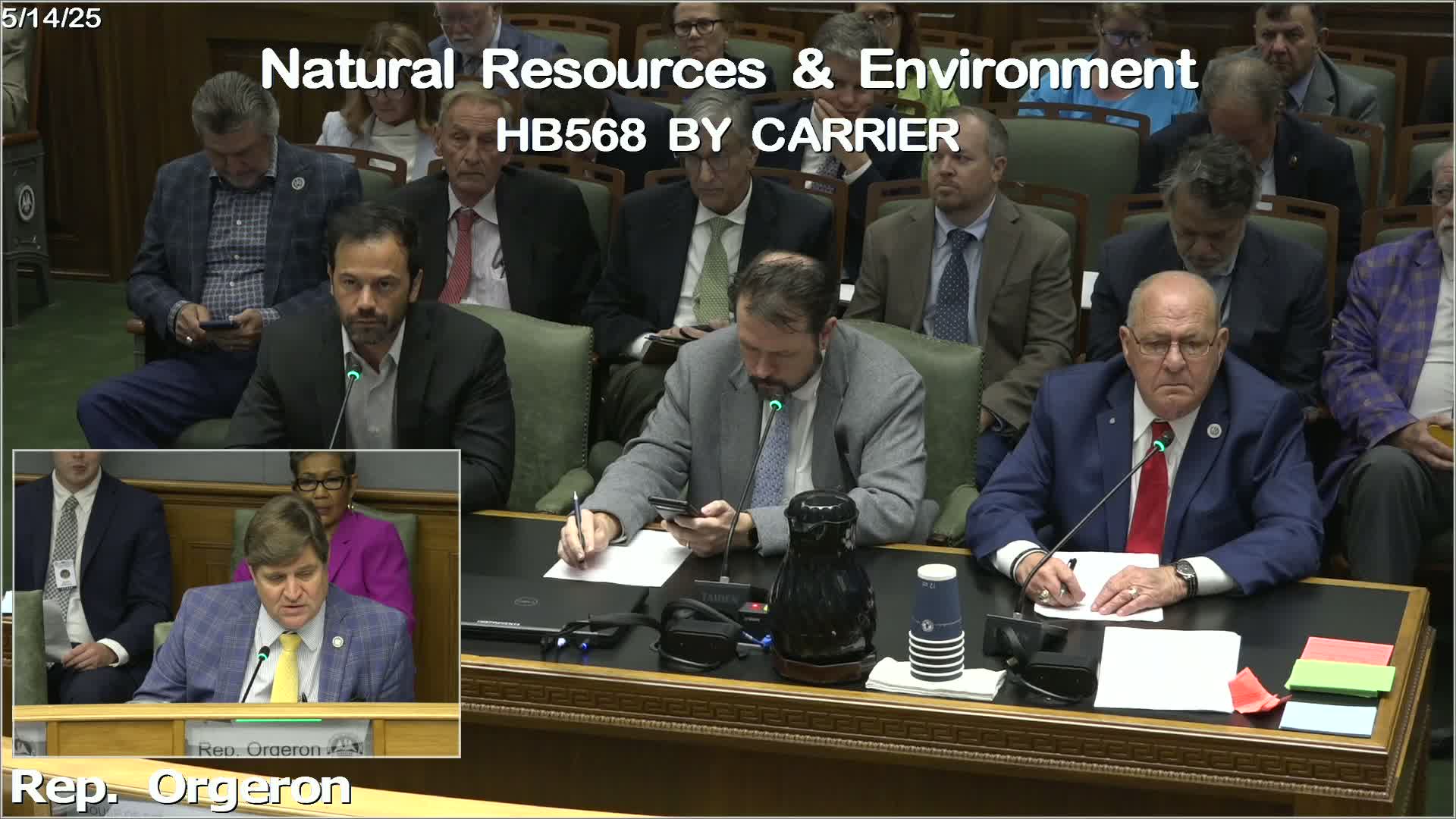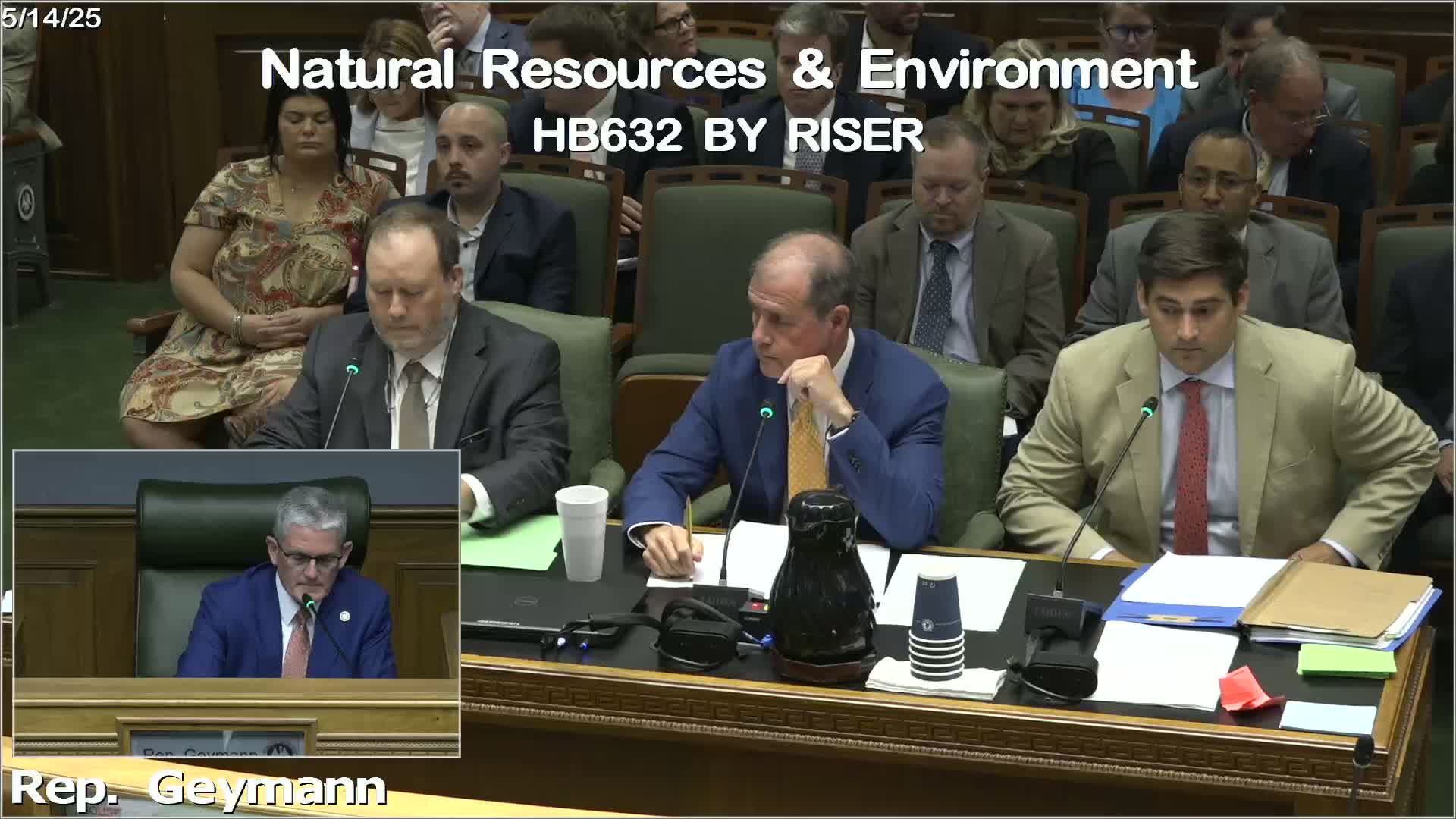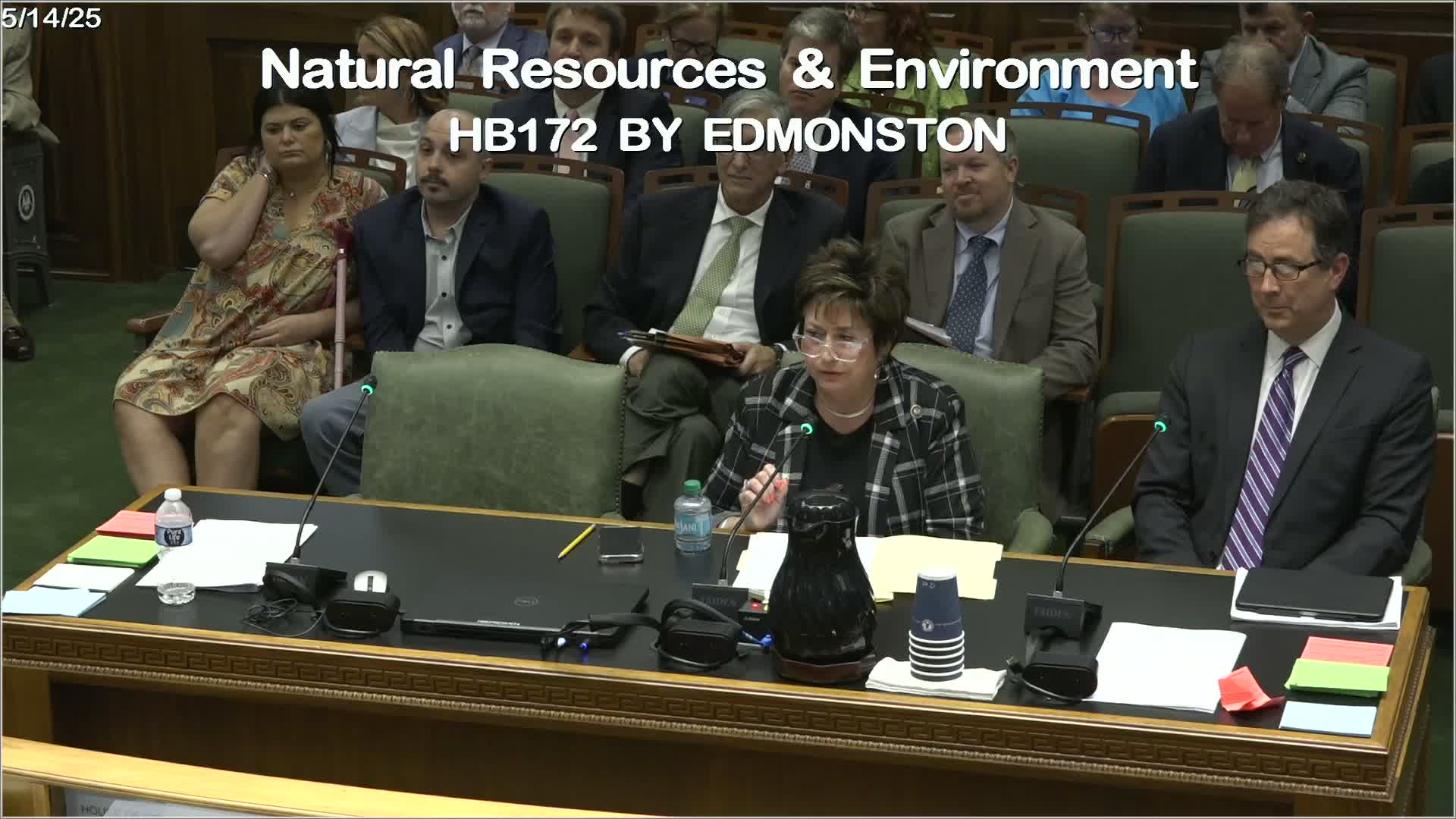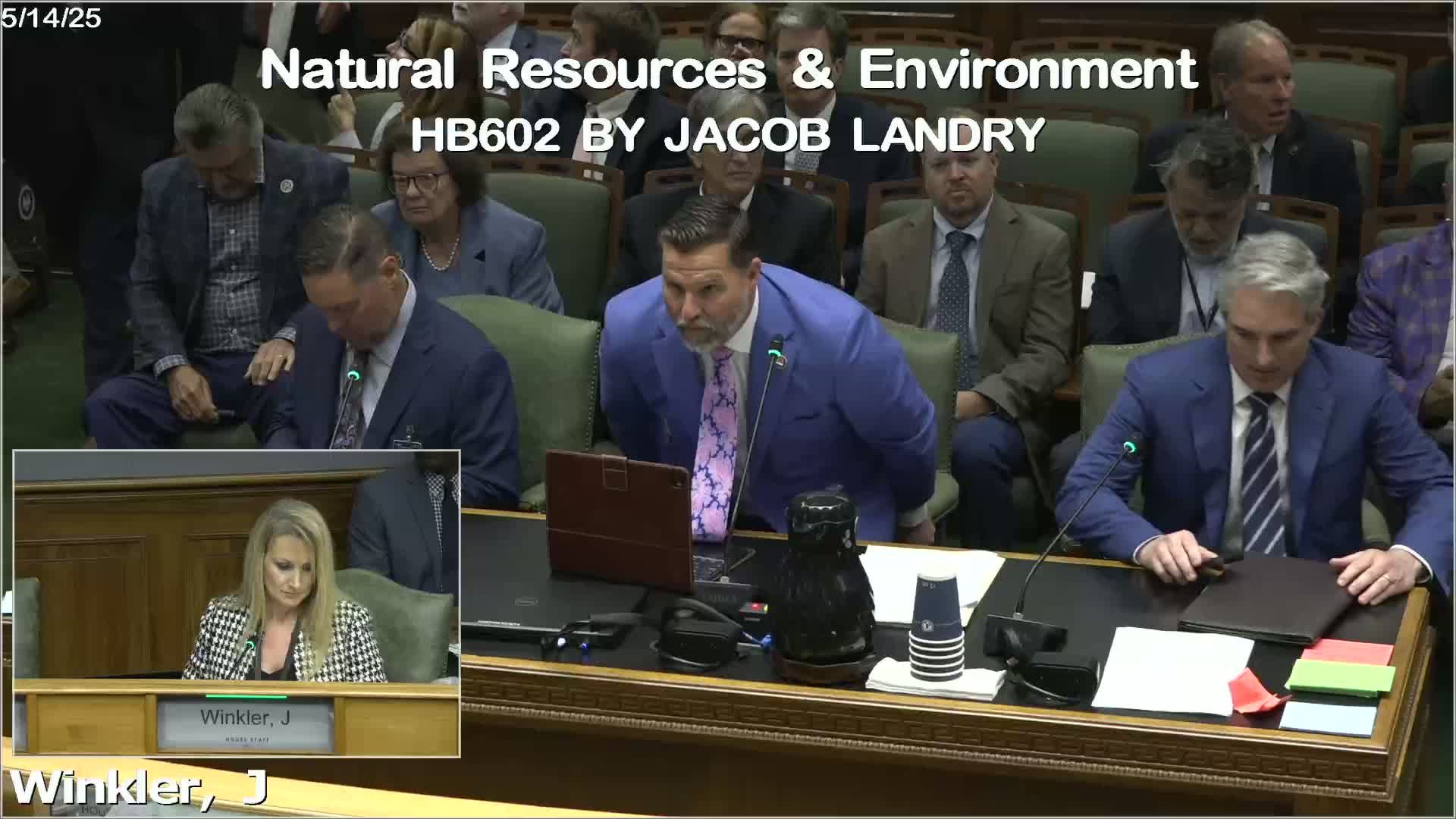Article not found
This article is no longer available. But don't worry—we've gathered other articles that discuss the same topic.

Committee adopts amendment and reports bill restricting weather‑modification activities upward to state enforcement

House committee backs bill to clarify mineral‑owner rights in carbon sequestration units amid contentious debate

Committee extends temporary exemption for Bayou Manchac and the Comite River while drawing conservation concerns

